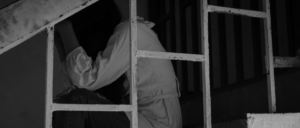"Reach every victim of trafficking, leave no one behind" - World Day Against Trafficking in Person, 2023 Theme
Child trafficking is a complex issue. Fueled by the demands of perpetrators, who pay to exploit children, it's only by learning what child trafficking is, and raising awareness about it, that we can work together to protect children and prevent this terrible crime from happening. At its core, child trafficking is a failure to protect the rights of the most vulnerable children in our society.
There is a lot of information online about what child trafficking is and is not, but one of the biggest inhibitors for Australians, who are trying to learn and understand the complexities surrounding this crime in our own country, rests on the fact that we have our own definition of child trafficking that differs from most other countries.
In Australia, it’s fair to say that most people see the topic of child trafficking as an “overseas problem”. We never see reports of it. It’s not vocabulary that’s used in reference to Australian children so if it’s not defined, talked about, or seen then that must mean… it doesn’t exist, right?
Sadly, that’s just not the case. We believe that there are children in Australia facing circumstances where they are being sold, exploited or trafficked. Desperately in need of assistance, their situations remain largely invisible or misidentified, because of Australia's ‘unique’ definition and restrictive law impacting domestic child trafficking victims.

According to the UN, ‘leaving people behind means’ failing to end the exploitation of trafficking victims, failing to support victim-survivors once they are free from their traffickers, and leaving identifiable groups vulnerable to traffickers.
In order for Australia to ‘leave no one behind’ we must make it a priority to firstly admit and identify that we (like every other country in the world) have a problem with child trafficking. This can not be ignored! It will be impossible to reach every victim of (child) trafficking if we keep saying, “there are none”.
ZOE Australia CEO recently stated, “The ZOE team in Australia has spent the last 18 months specifically focused on the issue of child trafficking within Australia. Our team has read research papers and reports, met with a range of experts and stakeholders, been a part of forums and held many meetings. We have heard from experts, social workers, NGOs, case workers and many people who are supporting vulnerable children through kinship, foster care, residential care and other out of home care models. Meeting after meeting we hear anecdotal stories of children being used by another adult, a ‘third party’ to commercially sexually exploit them. The child is often given something in return, accommodation, drugs, vapes or money. Our own research tells of real life stories from court documents, where children have been commercially exploited. There is no question that if these cases were in the USA or Thailand, they would be classed as child trafficking."
There is a key difference between the United Nations definition and Australia’s ‘unique’ definition of trafficking. The main variation is that Australia’s definition has a reliance on ‘movement.' We believe that if the reliance of movement is NOT changed in the criminal code to come inline with the UN definition then we, as Australians, can not reach every victim of trafficking and we are leaving victims behind - arguably those who need us most.
Children in Australia being trafficked remain largely invisible.
Australia has faced international criticism, with the United States Government recommending in their 2022 Trafficking in Persons Report that Australia ‘ensure the statutory definition of trafficking under the criminal code does not require movement of the victim as an element of the crime'.
If Australia was to adopt the international definition into the Criminal Code to include recruitment, transportation, transfer, harbour or receipt of person then this would allow the prosecutor to look at other elements and not rely solely on movement.
We believe that child trafficking doesn't always involve physically taking children to a different location. While the term "trafficking" may give the impression of transportation, child trafficking can also occur within the same area or even within a child's own community.
So given the restrictive definition, there is very limited information and data on the prevalence of domestic child trafficking.
Note: In Australia, the term 'modern slavery' is often used to include; trafficking in persons, slavery, slavery-like practices and the worst forms of child labour.
Small Steps Forward
In 2022, we were pleased to hear that the Attorney-General's Department initiated a Targeted Review of the sections within the Australian Criminal Code that pertains to the definition of human trafficking. ZOE made a submission as part of this review, detailing cases and voicing our concern about the restrictive nature of the law in Australia.
It is our hope that with both increased awareness and law reform, that Australia's response will be to reach all individuals (including children) making sure they are not overlooked, ignored or left behind. Every victim of trafficking should be protected, and provided with the support that they need to restore their dignity and help them rebuild their lives.
We look forward to seeing a more inclusive and proactive approach to child trafficking in Australia that reaches each victim of this heinous crime and leaves no child unnoticed or unsupported.
To learn more:
-
Sign up for our free online courses at https://courses.gozoe.org.au
-
Stay updated though our socials
-
Keep your eyes open for our next in-person or online update
-
Book a speaker for your event https://www.gozoe.org.au/speaker-booking-type/
Published by: Andrea Cross in Awareness, Blog
Tags: Australia, child trafficking, law

